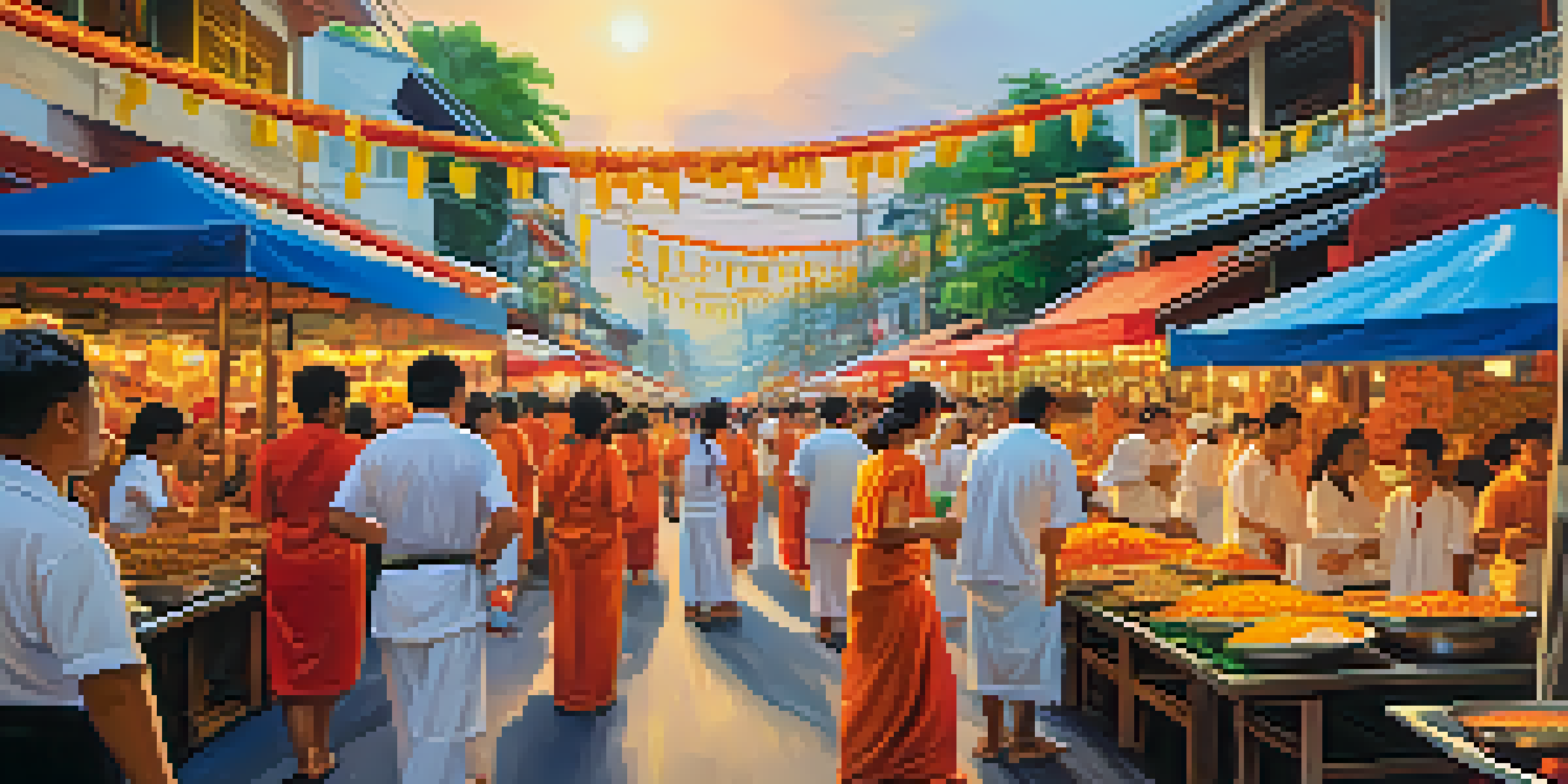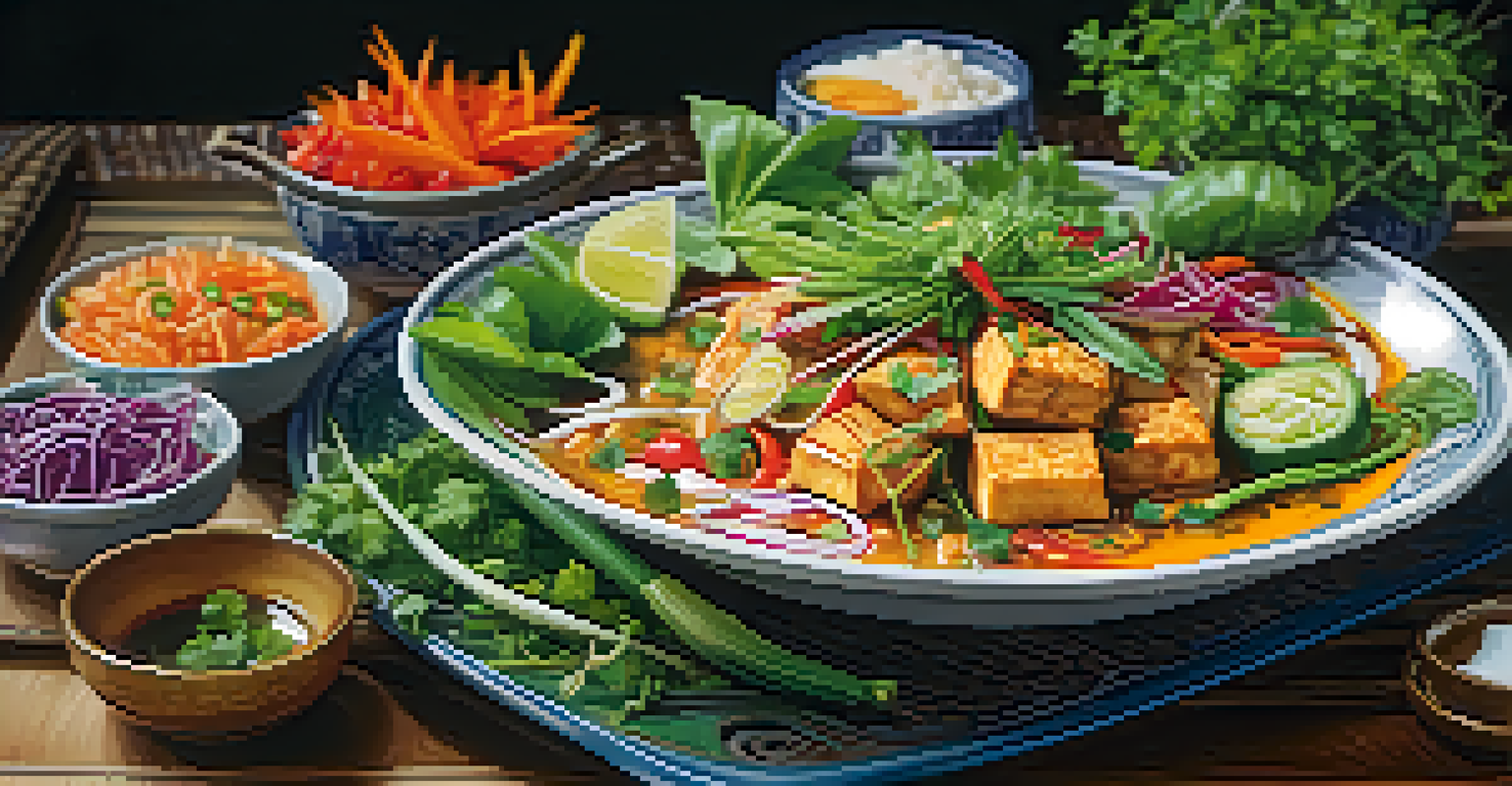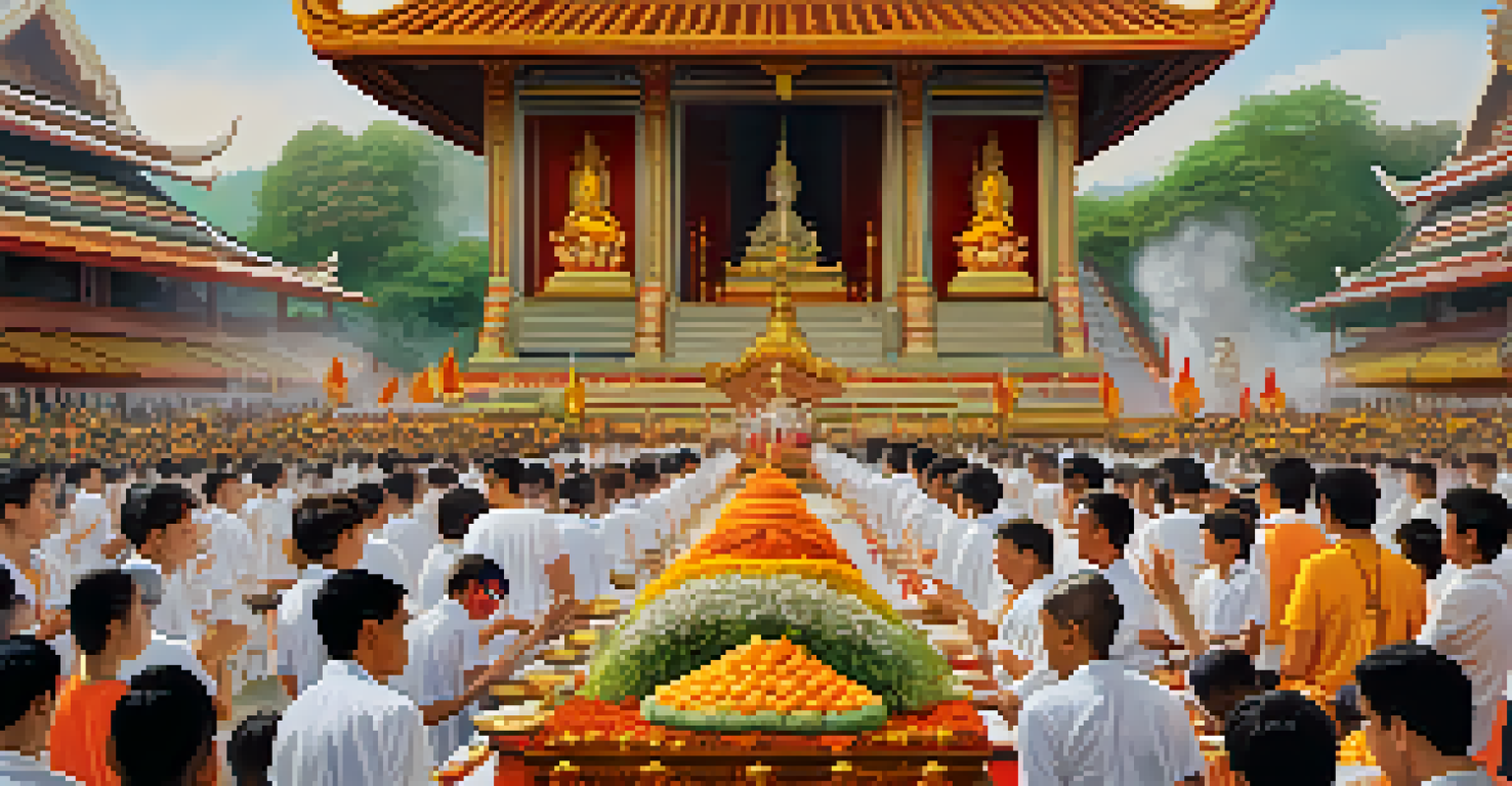Understanding the Thai Vegetarian Festival and Its Customs

What is the Thai Vegetarian Festival?
The Thai Vegetarian Festival, also known as the Nine Emperor Gods Festival, is a vibrant celebration held annually, primarily in Phuket and other parts of Thailand. This festival typically occurs in October, lasting for nine days, during which participants observe a strict vegetarian diet. The festival is rooted in the belief that abstaining from meat purifies the body and spirit, allowing individuals to connect with the divine.
Food is symbolic of love when words are inadequate.
The origins of the festival trace back to Chinese immigrants who settled in Thailand, specifically the Teochew community. They brought with them the tradition of honoring the Nine Emperor Gods, believed to descend to earth during this time. As a result, the festival has significant spiritual and cultural importance, attracting both locals and tourists who wish to experience its unique rituals.
In addition to the food aspect, the festival is marked by various processions, ceremonies, and rituals aimed at expelling evil spirits. Participants dress in white and partake in various acts of devotion, ensuring the festival is a colorful and lively affair.
Key Customs of the Festival
One of the most notable customs during the Thai Vegetarian Festival is the preparation and consumption of vegetarian food. Street stalls and restaurants offer a wide variety of meat-free dishes, with a focus on fresh vegetables, tofu, and grains. This culinary aspect not only promotes health but also highlights the importance of compassion towards all living beings, a core value in many religions.

Another significant custom is the ceremonial processions featuring spirit mediums. These individuals enter a trance-like state believed to allow the Nine Emperor Gods to communicate with the living. As they march through the streets, they perform various acts of devotion, including self-mutilation, which can be shocking but is seen as a demonstration of faith and commitment.
Celebration of Compassion and Purity
The Thai Vegetarian Festival emphasizes a strict vegetarian diet to promote health and spiritual connection.
Additionally, many temples hold special rituals to honor the deities and seek blessings for health and prosperity. These ceremonies often involve traditional music, dance, and offerings, creating a sense of community spirit and shared belief among participants.
The Role of Food in the Festival
Food plays a central role in the Thai Vegetarian Festival, serving both as a means of sustenance and a form of devotion. During these nine days, participants adhere to a strict vegetarian diet, avoiding not only meat but also strong-flavored ingredients like garlic and onion. This dietary restriction is believed to purify the body and enhance spiritual awareness.
The greatest gift of life is friendship, and I have received it.
Local vendors and restaurants take this opportunity to showcase their culinary skills, creating dishes that are both delicious and entirely plant-based. From flavorful curries to mouthwatering stir-fries, the variety is immense, and many dishes are infused with traditional Thai herbs to enhance their taste. It's a true feast for the senses!
Moreover, sharing food during the festival fosters a sense of community. Friends and family gather to enjoy meals together, and sharing vegetarian dishes symbolizes unity and compassion, inviting everyone to partake in a spiritual experience.
Cultural Significance of the Festival
The Thai Vegetarian Festival is steeped in cultural significance, reflecting the deep-rooted beliefs and values of the communities that celebrate it. It serves as a reminder of the importance of self-discipline, compassion, and spiritual growth. Participants often express their devotion through acts of kindness and charity, extending the festival's impact beyond just the nine days.
This festival also strengthens community bonds, as it encourages participation from people of all ages and backgrounds. Whether through food preparation, temple rituals, or processions, the festival fosters a sense of belonging and shared purpose among participants. It's a time when the community comes together, united by faith and tradition.
Cultural Fusion and Community Spirit
This festival showcases the blend of Chinese and Thai traditions while strengthening community bonds through shared rituals.
In a broader context, the festival highlights the fusion of cultures in Thailand, showcasing the influence of Chinese traditions on Thai customs. This blend enriches the cultural tapestry of the nation, making the festival a unique celebration that attracts visitors from around the world.
Rituals and Ceremonies During the Festival
Rituals and ceremonies are at the heart of the Thai Vegetarian Festival, each designed to honor the Nine Emperor Gods and seek their blessings. Daily rituals are held at temples where devotees offer prayers, incense, and food to the deities, expressing their gratitude and respect. These rituals create a sacred atmosphere, inviting participants to reflect on their intentions and spiritual beliefs.
One of the most visually striking rituals is the procession of the spirit mediums, who embody the Nine Emperor Gods. This event draws large crowds as mediums perform various feats, such as piercing their skin with sharp objects, believed to demonstrate divine possession and protection from harm. While it may appear extreme, it is a deeply revered tradition reflecting the participants' faith.
Additionally, many communities hold special ceremonies to cleanse the streets and homes, driving away negative energy and inviting positive blessings for the upcoming year. These rituals emphasize the festival's focus on purification, both physically and spiritually, allowing individuals to start anew with a clear mind and heart.
Eco-Friendly Practices During the Festival
In recent years, there has been a growing awareness of environmental sustainability during the Thai Vegetarian Festival. Many participants and vendors are adopting eco-friendly practices to minimize waste and reduce their carbon footprint. For instance, using biodegradable containers and utensils for serving food has become increasingly popular, promoting a more sustainable way to enjoy the festival.
Moreover, some organizers are encouraging the use of local, organic ingredients in food preparation. This not only supports local farmers but also ensures that the meals served are fresh and free from harmful pesticides. The emphasis on sustainability aligns with the festival's principles of compassion and health, extending care from fellow beings to the environment.
Sustainable Practices in Celebrations
Increasingly, participants are adopting eco-friendly practices, such as using biodegradable materials and local ingredients, to reduce environmental impact.
Engaging in eco-friendly practices during the festival also raises awareness among participants and visitors about the importance of protecting the planet. As more people become conscious of their environmental impact, the festival serves as a platform for promoting sustainable living, which is becoming an integral part of cultural celebrations.
Participating in the Festival: Tips and Insights
If you're considering participating in the Thai Vegetarian Festival, there are several tips to ensure you have a meaningful experience. First, familiarize yourself with the customs and dietary restrictions to show respect for the traditions. It’s a wonderful opportunity to try various vegetarian dishes, so come with an open mind and a hearty appetite!
Dress modestly, preferably in white, as it is customary for participants to wear this color during the festival. This symbolizes purity and respect for the deities. Additionally, be prepared for the lively atmosphere; the processions can be bustling with energy, offering a unique glimpse into the local culture and spirituality.

Lastly, engage with the locals! Many are happy to share their experiences and explain the significance behind various rituals. This interaction will enrich your understanding of the festival and create lasting memories, making your participation not just a visit but a genuine cultural exchange.